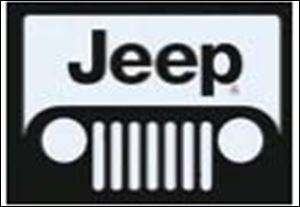
Jeep plant mulls shift to a 4-day workweek
8/5/2008
Officials from United Auto Workers Local 12 and Chrysler LLC have discussed a production switch at Toledo's largest manufacturer that could institute a four-day, 10-hour workweek for most employees.
The result of the switch, if implemented, would mean most hourly workers would have Fridays, Saturdays, and Sundays off while working 10 hours per day each Monday through Thursday. It also might mean less overtime.
"It's still in the investigative phase," said Mary Beth Halprin, a spokesman for Chrysler. "We haven't made any decisions yet."
Such a workweek would allow Chrysler to save significantly on energy costs, and save employees money by cutting their commuting costs by 20 percent, Ms. Halprin said.
"There is a strong connection between the environmental and cost benefits to running a shorter schedule per week," Ms. Halprin said. "It's definitely a new trend."
She could not say how much potential savings the automaker might obtain. About 2,200 people work at the Toledo Jeep Assembly factory making the Jeep Liberty and Dodge Nitro, and 1,100 work at the factories next door making the Jeep Wrangler. Workers at the Liberty and Nitro factory have been idled because of weak demand for the vehicles, and aren't due to return for three weeks.
UAW's leader at Toledo Jeep, Dan Henneman, confirmed that discussions have taken place but said many hurdles would have to be ironed out before a proposal was taken to the membership. The local's contract with Chrysler makes provisions for such a change, which could impact overtime opportunities for UAW members.
"In this economy, if this can help the company and it gives us three days off a week, I think it's a good thing for everybody," Mr. Henneman said.
It was unclear whether workers on the Wrangler line might change because the union holds different contracts with the individual suppliers that cooperatively build the vehicle, and some of those contracts currently would make the switch cost-prohibitive.
Businesses of all types and sizes have moved to alternative scheduling or four-day, 10-hour work schedules as a way to help employees and employers deal with the spiraling costs of energy. Depending on the industry, such schedules can cut commuting and energy costs and improve productivity in certain instances. The additional day off can also be a boost to employee morale.
Ms. Halprin said Chrysler is studying whether to make the switch at other facilities as well.
Automakers have tried such four-day, 10-hour scheduling before. Ford Motor Co. has several assembly plants around the nation that work such shifts, but most others do not, even when local language allows it, a spokesman said.
Chrysler has been studying alternative work schedules under pilot programs for some time. The privately held automaker is currently running such a program at its parts depot centers, which distribute auto parts to its network of automotive dealerships, Ms. Halprin said. It also previously tried the 4-10 schedule at its assembly facility in Newark, Delaware.
"This year, with the rise in gas prices and the business environment as a whole, it has increased the interest level" in alternative scheduling, Ms. Halprin said. However, she said the company and the union would notify Jeep employees first before such a change would be implemented.
Contact Larry P. Vellequette at:
lvellequette@theblade.com
or 419-724-6091.